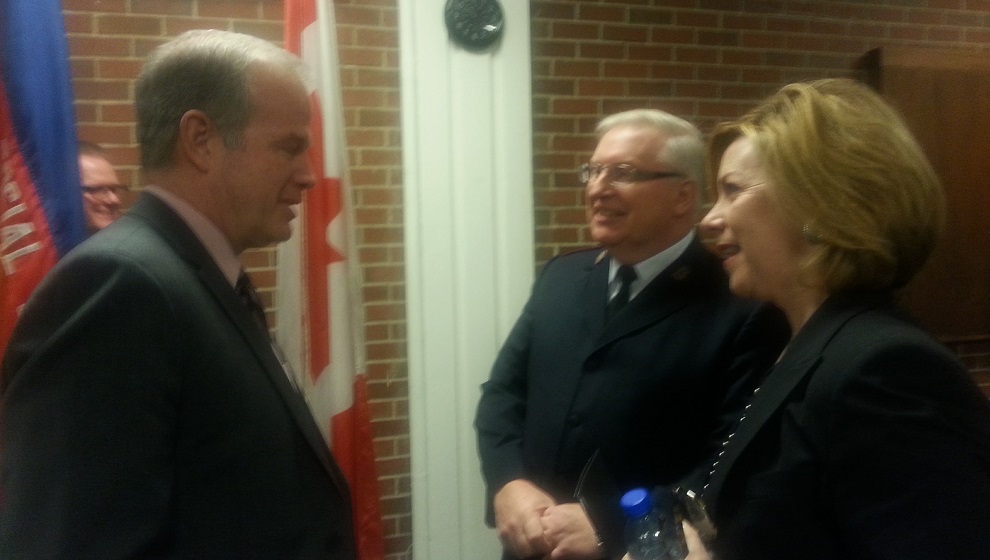Politics
N.S. government announces funds for emergency heating
The Good Neighbour Energy Fund helps many, but some say there are still issues

caption
Service Nova Scotia Minister Mark Furey (left) talks with Major Wade Budgell of the Salvation Army (centre) and Nova Scotia Power CEO Karen Hutt (right).The Nova Scotia government will once again be giving $800,000 to help low-income families heat their homes in emergencies as a part of a popular program that tries to alleviate the burden of high power and electricity rates.
The program is called the Good Neighbour Energy Fund (GNEF). It is run by the Nova Scotia Salvation Army and was used by 1,604 people in 2016.
It was started by Nova Scotia Power and the Salvation Army in 1997.
The province of Nova Scotia joined later and now funds the bulk of the program. This year, Nova Scotia Power is contributing $150,000 to the fund on top of the province’s $800,000.
Nova Scotia Power CEO Karen Hutt said that the program is a good example of the private sector, government and the non-profit sector working together to help the community. Giving a “hand up” to our neighbours is a “responsibility that we all share,” she said.
Service Nova Scotia Minister Mark Furey announced the funding Tuesday, Jan 31. In his speech he commended on the “outstanding reputation” and “essential support” of the Nova Scotia Salvation Army in running the GNEF.
Brian Gifford, of the Affordable Energy Coalition, says that while the GNEF is a start, it’s “not adequate.” Households can only apply for the fund once every two years. Gifford says that this leaves some people “with bills that they simply can’t afford.”
People who want help must apply through the Nova Scotia Salvation Army. The program is designed for low-income households and applicants must meet specific criteria. This includes not having used the program in the last two years and falling into specific income brackets. The brackets are an income under $16,000 for a one-person household, under $18,000 for a two-person household and under an extra $3,000 for every additional household member.
Gifford says that those with the biggest need for help are people who are spending more than three per cent of their income on electricity or six per cent of their income on heat and electricity combined.
“These people are pinched to find enough money for basic food and medications,” he says.
Marco Navarro-Genie, President of the Atlantic Institute for Market Studies (AIMS), believes the GNEF is a good program, but his preference is to take government completely out of the program and have it be funded completely by private donations.
“Let individuals help individuals; get the government out of the way,” he says.
Navarro-Genie feel that the current form of the GNEF is the “second best thing.” He says this is because a charity runs the program that is “closer to the people who need the service,” than the government.
Navarro-Genie says the government is creating the conditions that are preventing people from getting jobs by creating policies that are harmful to business in the province. As a result, he says, people do not have enough money to heat their homes and Nova Scotia needs the GNEF.
“It’s a bit of a self-serving disposition,” he says. “The same people who create the problem are now presenting themselves as the solution to the problem.”

